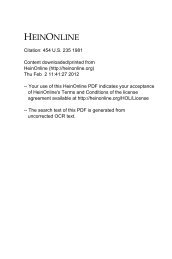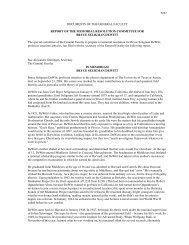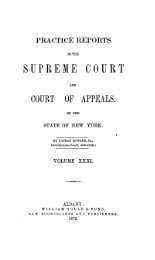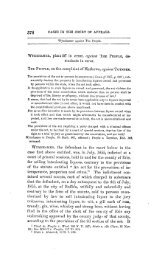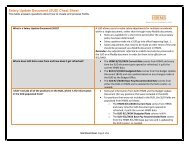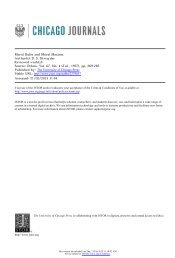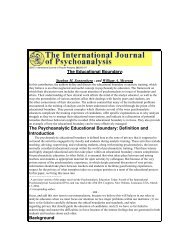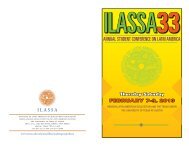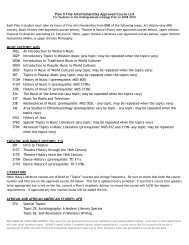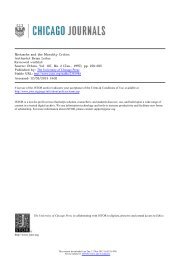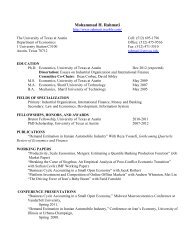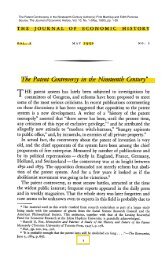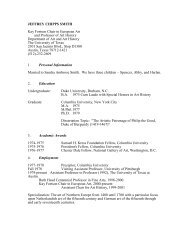Copyright by Gregory Krauss 2007 - The University of Texas at Austin
Copyright by Gregory Krauss 2007 - The University of Texas at Austin
Copyright by Gregory Krauss 2007 - The University of Texas at Austin
Create successful ePaper yourself
Turn your PDF publications into a flip-book with our unique Google optimized e-Paper software.
larger role for human rights in U.S. foreign policy. However, <strong>at</strong> the same time th<strong>at</strong><br />
Lister was helping to build human rights policy from within the St<strong>at</strong>e Department, he<br />
was shaping how others outside the St<strong>at</strong>e Department were pressing the human rights<br />
cause. Lister also had a substantial impact on the place <strong>of</strong> human rights in U.S.<br />
foreign policy <strong>by</strong> encouraging young people to pursue their human rights goals.<br />
Encouraging a Culture <strong>of</strong> Objective Advocacy<br />
Persuading Activists to Lob<strong>by</strong> the U.S. Government<br />
Lister’s ubiquitous presence <strong>at</strong> human rights meetings and events in<br />
Washington, D.C. <strong>of</strong>ten puzzled some activists. “So George started popping up <strong>at</strong> all<br />
kinds <strong>of</strong> events, solidarity events,” said Eldridge. 134 “I mean I’d look around the room<br />
and there you’d have a bunch <strong>of</strong> hardcore leftists and George was sitting over in the<br />
corner.” Some activists suspected Lister was a spy, but he was too conspicuous for<br />
th<strong>at</strong>. “I thought…if they’re spying on us this is a darn clumsy way to do it,” said<br />
Eldridge. “He was the only one with a co<strong>at</strong> and tie, for heaven’s sakes, and it just<br />
didn’t compute.” 135<br />
Lister had a number <strong>of</strong> reasons to go to human rights events—aside from the<br />
fact th<strong>at</strong> he probably found them interesting. As mentioned above, Lister was the<br />
main contact between the human rights bureau and the human rights movement<br />
during the 1980s. To some degree, he was, indeed “spying.” Attending the events<br />
helped him to get good inform<strong>at</strong>ion on human rights issues, and it gave him the<br />
85



